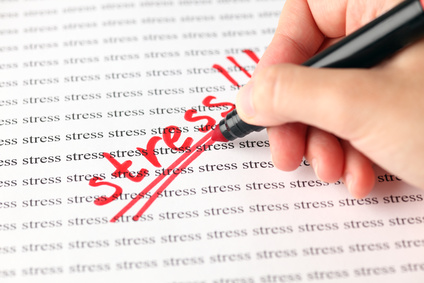10 Ways to Reduce Stress in Fibromyalgia Patients
 Stress is probably one of the most common triggers of fibromyalgia flare-ups and pain conditions. Being under constant stress depletes the body of the necessary coping hormones needed to keep the body functioning properly. This is why stress is like the Grandfather of triggers and is the culprit of a collective “shut down” when it goes on for too long.
Stress is probably one of the most common triggers of fibromyalgia flare-ups and pain conditions. Being under constant stress depletes the body of the necessary coping hormones needed to keep the body functioning properly. This is why stress is like the Grandfather of triggers and is the culprit of a collective “shut down” when it goes on for too long.
Very often, stress sneaks up on you and depletes your stress-coping hormones without you even realizing it. Responsibilities grow, a loved one gets sick, your health is deteriorating, etc. Before you know it, you are fighting off infection after infection, dealing with more pain flare-ups, having digestive problems, nutritional deficiencies, and a laundry list of other complications. Suddenly, you’re bedridden for days at a time because the pain and fatigue is overwhelming and life has once again taken a turn for the worse.
This is why it’s imperative to treat stress as seriously as you would chest pain, or it will turn into a silent assassin.
Let’s take a look at a few ways you can reduce stress in your life. Some of them are so simple, you may roll your eyes at the screen. I urge you to try them anyway. You’d be surprised how effective these can be! All of the below have been thoroughly studied in clinical settings to gauge stress levels and have proven exceedingly efficient, so don’t write them off because they sound ridiculous. Besides, what’ve you got to lose?
- Progressive relaxation: This is the process of tightening up muscles for a few seconds and then releasing them. For example, consciously tighten the muscles in your shoulders and neck and hold like that for 5-10 long seconds, then release them. Do this with every muscle group you can think of. It’s not only distracting, but helpful in releasing muscle tension.
- Yoga: I recommend this frequently for my fibromyalgia patients because it really does help. You don’t need to do anything excessive. Gentle yoga will help keep the body flexible and strong, as well as teach you deep breathing methods that help you cope with daily stress.
- Deep breathing exercises: Every couple of hours, stop what you’re doing and take a few deep breaths. All the way in, hold for a few seconds, and then all the way out. Do this 5-10 times. Deep breathing lowers cortisol levels (the stress hormone) and will help reduce stress and anxiety
- Aromatherapy: Thousands of years have shown us the benefit of aromatherapy, but science has proven it. There are certain scents that help reduce anxiety and stress and trigger the “happy” hormone in the brain. Some fragrances to consider are lavender, lemon, bergamot, and ylang ylang. You can use these in oils, creams, perfumes, incense, etc. Choose what works for you.
- Music therapy: Of course, punk rock and heavy metal are not likely to reduce anxiety, but soft, soothing music like classical, drumming, meditation music, etc., can trigger the release of biochemical stress reducers.

- Laughter, and lots of it: Laughter really is the best medicine. Finding joy in everyday life makes the harder parts of it much easier to deal with. Studies show that laughter reduces physical stress and fatigue. So, watch a funny YouTube clip, turn on a comedy movie, or go to a stand-up comedy show.
- Get a hug, for at least 20 seconds: This one will not only make you smile, but science shows that hugging tightly, or cuddling, will release the hormones that are responsible for making you relax and feel safe. A tight squeeze hug in the middle of an anxiety or panic attack can also slow the central nervous system down and help you calm down.
- Chew gum: This one may sound strange, but studies have actually shown that chewing sugar-free gum when stress hits actually reduces cortisol levels and alleviates stress.
- Guided visualization and meditation: Visualizing serene scenes while focusing on deep breathing for just a few minutes has a chemical effect in the brain. It can help reduce cortisol levels and release the feel-good hormones, so it also reduces anxiety.
- Arts and Crafts: Utilize your imagination; everyone has one. A creative outlet is probably one of the most empowering and relaxing hobbies you can have. In fact, I believe it to be essential in today’s constantly chaotic and overbearing culture. Even if it is just journaling your day’s events, it provides you with a way to release pent up stress and anxiety. You could also do some sort of craft such as knitting or crochet, play an instrument, paint on a canvas, write poetry, read out loud, or virtually anything that is going to expunge your mind of the day’s events. You don’t have to spend hours doing it, but just a few minutes a day will go a long way to helping you cope with daily stress and reduce your risk of further health problems.






Leave a Reply
Want to join the discussion?Feel free to contribute!